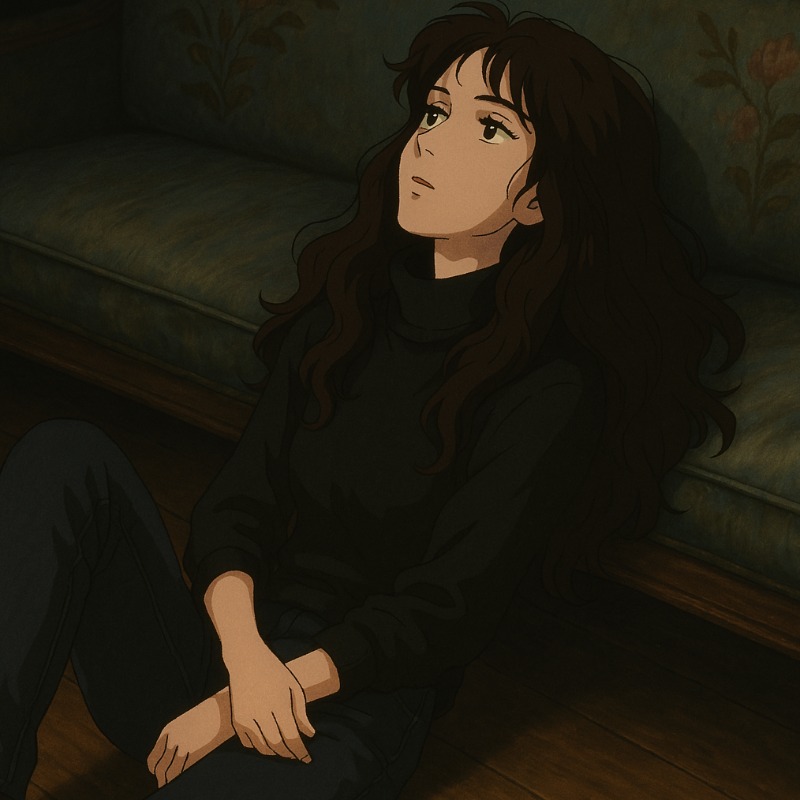A story was written on a night like any other — quiet, suffocating, full of words that were left unsaid.
The moonlight pooled on the floor of her room, filtered through a dusty windowpane. The fan whirred overhead, too tired to cool the thick silence that sat between the walls. She sat on her bed, knees pulled to her chest, her diary screaming under the stack of textbooks, which killed her talent, her thoughts, and her, she hadn’t had the energy to read.
A black gel pen in her hand.
A lump in her throat.
And a heart too full of pain to hold it all in anymore.
So she started writing.
Not about a fictional land with magic, or some perfect girl who wins every battle.
She wrote about herself.
But not quite as 'herself'. No name. Just *the girl*. It was safer that way. Safer to write as if she were someone else.
---
In a quiet town, nestled between tradition and expectations, lived a girl who never truly felt like she belonged. From the day she was born, her fate was sealed — not by anything she did, but by the simple fact of who she was. She was the second daughter in a family that had been praying for a son.
Her arrival wasn’t met with joy, but with silence. A pause. A sigh. Disappointment cloaked in forced smiles. A girl again? That was her first sin.
As she grew up, the walls of her home echoed with voices—but none ever called her with love. Her parents laughed with her siblings, teased them, embraced them. With her, it was different. Their words were cold commands, sharp criticisms, silence that stung more than shouting ever could.
She was needed only when chores piled up. When floors needed scrubbing, when dishes needed washing, when someone had to take the blame. She did it all without protest, hoping—just maybe—if she was useful enough, they’d see her. Love her. But love never came.
Her sister, born before her, treated her with venom dressed as indifference. “You’re my bad luck,” she’d say with a flick of her hair. “I only talk to you because I 'have' to.” And even those words, cruel as they were, were better than the silence from her brother, who had learned to ignore her before he could spell his own name.
The girl learned to be invisible. She learned to move without sound, to cry without gasping, to ache without showing it on her face. But even in her stillness, her family found fault. “You’re the most useless one,” her mother would mutter. “Why couldn’t *you* have been a boy?” her father spat one night after a drunken fight. The memory burned more than any slap ever could.
She studied hard, stayed out of trouble, followed every rule. But it never mattered.
When she fell ill, they scolded her for the medicines. “You’re a burden,” her mother said. “Even your sickness costs us.” When she stayed quiet during arguments, they accused her of being heartless. “You don’t care,” they snapped. “You’re the coldest child we have.”
And so the girl stopped trying to explain. There was no space for truth in a house where her existence itself was the problem.
But pain needs a place to go. Some nights, it spilled out in the form of muffled sobs behind the bathroom door. Other nights, she would scratch at her skin until it turned red, or punch the walls just to feel something—*anything*—other than the gnawing ache in her chest. She would stare into the mirror, hating the girl who looked back. Her skin too dull, her eyes too tired, her body too flawed to ever be accepted. She began to believe the things they said about her. That she was the wrong child. That she was cursed.
But even broken things need to breathe.
And so she found corners of light in her world of shadows. A quiet balcony where the stars didn’t judge her. A teacher—Prakhar sir—who listened when no one else did. A few friends who didn’t know the whole truth, but offered smiles she held onto like lifelines.
And now, this page. This pen. This story.
She wrote not to be seen, but to remember that she *was still here*. Despite everything. Despite *them*. Because sometimes, survival is its own rebellion.
---
The fan still whirred above. Her pen finally stopped moving. Her hand trembled, not from fear—but release.
She looked at the story she’d written. The girl she’d described felt distant and familiar all at once. She was still aching, still longing, still unseen. But tonight, she had written herself into existence.
She had no idea if anyone would ever read it. If anyone would ever care. But tonight, that didn’t matter.
She closed the diary gently, fingers resting on the last page where she’d scrawled the title in small, trembling letters:
"The Girl Who Wasn't Wanted."



 React
React
 React
React
 React
React
 React
React
 React
React